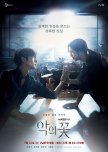
The series is most notable for the creative shots and camera angles. With competent acting and a fantastic soundtrack, it will keep you on the edge of your seat. I will admit the plot is not so airtight and there is an overreliance on coincidences, but don’t overthink it. Just enjoy the ride.
The one thing I can’t enjoy is the last episode, which is bad on an epic level. It feels like I’m watching an entirely different show, one full of clichés and hammy acting that is the plague of Asian dramas these days. If they could just end it at episode 15 and leave the rest to our imagination, this would’ve made my short list of all-time favorites.
Was this review helpful to you?
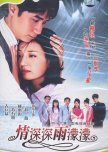
Vicky’s Lu Yi Ping is one of the most complex and sympathetic heroine. She grew up in an emotionally and physically abusive environment. Like a wounded animal, she’s bitter, vengeful, and tends to lash out unexpectedly. Torn between love and hate, she doesn’t always say what she means and doesn’t mean the awful things she says. That mental struggle is all there in Vicky’s eyes. There's a subtle tension and weariness in the way she carries herself as well. I was glued to the screen rooting for Yi Ping to put down her burden and find happiness, even if it’s with a wishy washy guy like Shu Huan.
Compared to Vicky, the rest of the core cast is a letdown. Ruby Lin doesn’t even bother to figure out what makes her character tick, which is a waste since her Ru Ping could’ve been much more interesting. Alec Su, likeable as he is, can’t do comedy and his attempts to be funny is cringey. Xu Lu is over the top fake as the insane Ke Yun. But the most unforgiveable performance has to be Leo Ku as Shu Huan. Now Leo doesn't have the screen presence of a leading man. He's also a so-so actor with a limited range of expression. His hospital reunion scene with Vicky is meant to be dramatic and heart-rending, but the look on Leo’s face is so dopey it borders on comical. How something like this makes it into the final cut is beyond me. The director should have made Leo redo half of his scenes until he gets it right, or just cast a different actor.
The writing itself fluctuates between the profound and the absurd. Do they honestly expect me to believe that the way to treat mental illness is to make the patient re-enact all the love scenes in their past? Or that a man who forces women he doesn't love to marry him is the most romantic guy in the world? Or that a wife and child beater still qualifies as hero? I get that the show is telling viewers that life - and people - are not black and white. It ends up undoing that premise by sugarcoating everything in an attempt to make us feel all warm and fuzzy.
Don’t focus too much on the show’s flaws or it will drive you crazy like Ke Yun. Just enjoy it for Vicky Zhao as she’s simply wonderful here.
Was this review helpful to you?
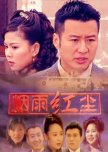
Chang Pei Hua as the male lead was a nice surprise. Known for playing vapid Qiong Yau heroes, he broke out of that mold by bringing an edge to the character of Hong Ri Sheng. Instead of imitating Chow Yun Fat's style, he had his own unique interpretation of a mob boss that I really like.
Yvonne Zhang has a lovely smile that could melt your heart. You see it in “Lushan Lian,” but you won’t see it in this series. Here, her smile never quite reached her eyes. Her Xin Yu didn’t light up when she looked at Ri Sheng. That spelled doom for their chemistry. I didn’t care for them as a couple.
The breakout star of this show was the uber versatile Sun Xing. He played a sick scumbag in TLTG and was a complete opposite of that here. As Zhang Jie, he was a teddy bear of a man who can be tough and fiercely loyal when he needed to be. His rocky romance with Gu Lan was easily the best thing about this drama. It was so sweet to see Gu Lan, a battered and cynical woman, learn to smile and fall in love with this adorable goofball.
If you’re a fan of Sun Xing, watch this for him because it’s one of his best performances and he doesn’t often get a starring role. If you’re not a fan of Sun Xing, you will be when you're done with this show.
Was this review helpful to you?
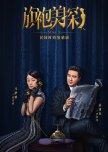
The murder cases themselves aren’t exactly mind blowing, mainly because the source material (Kerry Greenwood’s Miss Fisher) isn’t the best. The way the screenwriters work the clues into the dialogue is clumsy and very obvious. If you are truly a mystery buff, you will correctly guess the murderer every time. There are flaws in the logic, but the story moves along so fast you'll hardly have time to dwell on them. The show wants viewers to think, but not overthink.
A lot of effort goes into the sets and costumes. I just can’t get used to this Candyland version of Shanghai. The colors are oversaturated and downright fake. The sets look too busy, especially the inside of Miss Su’s mansion (that portrait in the main hall scares me). Instead of appearing classy, it comes off as cheap. The same goes for the clothing. If the designers would tone it down just a tad, the dresses would have been perfect.
The acting is mostly competent, if not a little unnatural at times. What makes this show a must-see is the sexual tension between the main leads, Ma Yi Li and Vengo Gao. As Miss Su and Detective Luo, they are a rare gem of a couple. Neither is the other one’s first love. They never say “I love you” outright. They don’t even declare their feelings. Their relationship builds slowly from case to case, culminating in the moment where Detective Luo pummels the bad guy, definitively saying “How dare you hit my woman!” And there’s nothing more intimate than a woman tenderly shaving a man who clearly does not need shaving. These two don’t need to lock lips to show that they are hot.
I love the series’ catchy theme song. It’s a jazzy instrumental that pays homage to the original Miss Fisher series.
Was this review helpful to you?
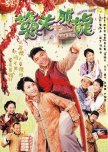
Ah Wong is not your usual shiny leading man. He is mentally disabled, a child trapped in a body of grown man with a bad bowl cut to match. He represents the best in us, when we were young and most innocent. Your heart will break when he’s hurt, and it will rejoice when he rises to the challenge. Roger Kwok’s performance is spot on, nailing the tiniest detail from the voice, the hand gestures, to the facial expressions. This is his role of a lifetime. No other actor can touch him here, not even Tom Hanks as Forest Gump.
Jessica Hsuan is a very down-to-earth actress who rarely overdoes it. Give her any ridiculous plot and she will keep the story grounded. Her Choi Fung starts out a girl who doesn’t want to be stuck with Ah Wong and tries all sorts of tricks to get out of their marriage. Then she learns to adapt and slowly starts to care for the husband who can never really be a husband to her. Jessica, with her acting style, makes that progression totally believable.
The rest of the cast ranges from decent to very good. The script and the directing are basic. It’s really Roger who makes this show into something unique and memorable.
The reason why I can’t give this 10/10 is in the last few episodes. I have a hard time accepting that a woman would fall for a man who is, in effect, a child. It doesn’t feel right. Choi Fung may love Ah Wong, but to actually be in love? No. Just no.
Was this review helpful to you?

Shui Ling and Athena Chu shined here as the Xiao sisters, Yu Feng and Yu Juan. Both looked beautiful albeit in very different ways. The wardrobe department made sure their outfits matched their personalities. Yu Feng wore soft pastels while Yu Juan wore bright and vibrant prints. Their musical numbers were absolutely charming. I rewatched this series just to see them sing their hearts out (yes, I know it was dubbed).
The plot was mainly driven by the Xiao family tragedy, which was supposed to heart wrenching. Yet my heart didn’t feel wrenched in anyway. The actor who played the father was not convincing in whatever little screen time he was given. You never get a sense of the happiness and security that the Xiao children had and lost. By extension, you don’t empathize with Yu Juan’s need for revenge. You certainly don’t get Yu Feng’s self-loathing when she fell for Zhan Yun Fei, the son of the family responsible for her father’s death.
The Zhan family dynamic was much better developed. The veteran actors who played Mr. Zhan and his first wife were excellent and had the best lines. They showed us a couple whose marriage seemed fine but had hidden cracks and festering wounds. Mr. Zhan, as the patriarch, was clueless when it came to his own wives and sons. His family was the polar opposite of the Xiao family - filthy rich in money and dirt poor in love.
Zhan Yun Fei could have been the most interesting character. He had his own personal tragedy that led him to live a double life, one as the heir of the richest man in town and one as a lowly traveling writer. His relationship with his father and younger half-brother, Yun Xiang, was complicated. Tuo Chung Hua failed to grasp this in his portrayal of Yun Fei. Instead of being the complex man he was written to be, Yun Fei came off as wildly inconsistent. Well, he was consistent in one thing: his love for Yu Feng.
It was strange to see Vincent Jiao as the villain. He was not good. His Yun Xiang was mostly a caricature who looked more silly than scary. Vincent is obviously a much better actor than this, so I resent the director for making him act so hammy.
Fans of the classic Hong Lou Meng would be thrilled to see Deng Jie here. She once again played a strong, practical female character. The other major guest star was Liu De Kai as the chivalrous Mr. Zheng who swooped in and solved everyone’s problems. It was deus ex machina, the hallmark of lazy writing. I never expect anything clever from Qiong Yao's writing anyways. Her strength was in laser-focused family dramas.
This story had so much potential that I wish they would do a remake. With the right cast and a good director, it could become a hit.
Was this review helpful to you?
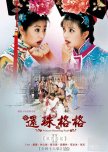
In the first series Xiao Yan Zi was a wily, street smart girl capable of taking care of herself and others. In this series she turned into a village idiot who always needed to be saved from her own stupidity. This was not Vicki Zhao’s finest hour, as her acting was so over the top that it hurts to watch. The lowest point was when Xiao Yan Zi carelessly abandoned Zi Wei in the market. What happened to their everlasting bond of sisterhood?
Zi Wei in part II changed from a level-headed girl to a love-obsessed woman (that kissing scene between her and Er Kang was one of most awkward things ever filmed). Her betrayal of her own father was completely out of character. I find it laughable that she and Xiao Yan Zi were hailed by commoners as “The People’s Princesses.” Unlike Princess Diana, they’ve done squat to support the lives of poor people.
Emperor Qian Long, who was so regal in the original series, was reduced to a leering old man here. Wu A Ge went from being a voice of reason to an insecure, angry guy. Er Kang was given more love scenes but not much else to do besides being Zi Wei’s constant rescuer. He was supposed to be the emperor’s bodyguard, but you hardly ever see him at work.
In this sequel, author Qiong Yao gave us more princesses, more costume changes, more lovey dovey scenes, and more Xiao Yan Zi antics. There was more of everything, except a credible story. Sometimes being a good writer is knowing when to stop.
Was this review helpful to you?
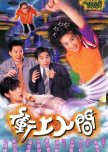
This review may contain spoilers
This was supposed to be a supernatural romantic comedy. It failed on all three counts. The only thing it was good for was a cure for your insomnia.The writers reimagined present day hell as a space-agey Spirit World. Sadly, this place was kind of dead, in more than one way. It never felt real or convincing as a world parallel to our own. Everything about it was willy-nilly. Rules were set, broken, ignored, rewritten to drag out a plot that went absolutely nowhere.
The show was funny, if your idea of funny was watching a bunch of people scream and shove each other around. There was a lot of that, ad nauseam. Jerry Lamb, as the guardian spirit Siu Bo, managed to squeeze in a few zingers. I got some chuckles, but mostly yawned my way through the episodes.
Roger Kwok and Maggie Cheung were excellent actors, separately. As a couple they never really clicked. They went from boring to downright annoying and selfish by the end of the story. Poor Siu Bo had to risk his neck whenever these two flouted the rules of the Spirit World in the name of “love.” In the end, Siu Bo sacrificed to himself to turn back time, so Maggie’s Ka Yi didn’t have to have to die in the first place and can be together with Roger’s Dak Ming. Let’s be clear about what that meant: everything after episode 1 never happened. All the storylines and character growth were wiped clean. Just because the writers couldn't think of a better way to give the main couple a happy ending. I really couldn't care less if they get together.
The only decent thing about this series was the Nick Cheung-Monica Chan pairing. Neither were likeable at first and their bickering was more tedious than funny. Then sparks started to fly and their love made them better people. But none of that mattered, because every good moment they have together was erased from existence thanks to this cop out of an ending.
Was this review helpful to you?
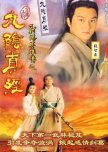
David Chiang as Huang Yao Shi was an awesome sight to behold. With his martial arts background, he knew how to make an entrance at each fight scene. Since Huang was a man of action and very little word, you can read him through David’s body language and micro-expressions. It was smart and subtle acting. Watch for the scene where he learned that his wife was pregnant. His reaction was priceless, in keeping with his eccentric nature.
Fiona Leung was at her most beautiful in this series. Her Feng Heng looked at Huang Yao Shi with such longing eyes that you can almost see his heart melt. Their relationship was as unique and unconventional as Huang himself. Even when surrounded by enemies, these two seemed to be in a world of their own. That's why it made zero sense when she left him hanging and ran off to try and save her father on her own. That was a stupid move and very unlike her intelligent self. It was sloppy writing and one of few flaws in an otherwise tight plot.
The writers really delivered a nice version of Chen Xuan Feng and Mei Chao Feng. They were less Bonnie-and-Clyde and more like Romeo-and-Juliet. Julian Cheung was just plain cute and so very likeable. His Chen Xuan Feng was much like Guo Jing, naive and principled and just a little shy. He and Mei Chao Feng were a case of opposites attract. Emily Kwan as Mei Chao Feng was surprisingly good. She may not be the prettiest actress, but Emily did have this fierceness to her acting. Unlike Feng Heng, Mei Chao Feng wasn’t ok with being helpless and protected by the man she loved.
This series had all-around good acting and character building. Ou Yang Feng was menacing yet pitiful. Liu Kai Chi was his usual best as the hilarious, no-filter Zhou Bo Tong. In fact, the whole of Quanzhen Sect was unexpectedly fun to watch. The plot had a good pace and didn’t linger unnecessarily. The fight scenes can be confusing with lots of cuts and shaky cam. Even so, the final frame with Huang Yao Shi catching a single flower petal with his sword was pure art. It was one of the most symbolically beautiful ending I’ve ever seen.
Was this review helpful to you?
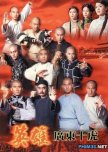
The series covered a depressing time in Chinese history, the Opium War. I get that they can’t rewrite history to give everyone a happy ending, but they should at least give us viewers something to chew on. There was no message of hope, and certainly not of brotherhood. Not much time was spent in building up the camaraderie between the heroes.
The only bright spots were Kenny Lin’s So Chan and his love interest played by Claire Yiu. He was a rich playboy who liked a poor girl but didn’t know how to get her attention and so ended up teasing her mercilessly. Their courtship was charming and not overly cutesy. Both matured in a realistic, if not idealistic, way. Pity they didn’t have more screen time together. If the writers made this whole thing about the life and love of So Chan, it would’ve been a much better series.
If you’re looking for great kung fu scenes, you’ll be sorely disappointed. The action sequences were uninspired at best. The few things I did like were the set designs and costumes. There were no green screens, saturated colors, or skin smoothing photoshop. Everyone dressed according to their station. It felt very natural and true-to-life. After all, this show was an ode to the common people, not the elite.
Was this review helpful to you?

The main cast was gorgeous. The girls were stylish and the guys suave. Try as they might, the actors couldn’t save themselves from the trainwreck that was the writing.
Hawick was born to play this type of leading man. He was hot, cool, and ideal as the romantic hero who would do everything for the one woman he loved. Tony Yang, equally hot and less cool, was not so convincing as the blind lover. They made him reenact that dancing scene from “Scent of a Woman,” but he just couldn’t channel his inner Al Pacino.
Yang Rong may be too cute to play a menacing murderess. That said, she nailed the smug look so well that you want to slap it right off her face. Her evil schemes were predictable and dumb. She only got away with it because the script made her victims much, much dumber. Her biggest victim, our female lead Jiang Xin, was the dumbest one of all.
Tiffany Tang was very sweet and dainty, but still the weakest of the four main actors. She mostly acted towards the camera instead of towards her co-stars, thus ensuring that there was zero chemistry with Hawick and Tony. Her body language was awkward at times. It didn’t help that whoever dubbed her voice sounded so childish. Her acting was quite simplistic, too. She went from scene to scene, yet unable to make them connect. This was most obvious in the episode where her Jiang Xin faced a dilemma: do the righteous thing that might get people killed, or walk away to protect your loved ones. Of course she chose to do the “right thing” which led to a night of mayhem and death. She shed beautiful tears as they cued heart-wrenching music. The next morning, when asked if she slept well, she smiled cheerfully and said yes. No sign of emotional scarring or guilt, whatsoever.
This is one of those shows that I really want to love, but can't.
Was this review helpful to you?
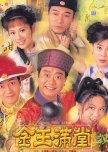
You might wonder why Bobby Au Yeung enjoys such a long and successful career. After all, the man is chubby and balding, not exactly leading man material. But he’s smart enough to understand what makes a convincing performance: knowing what makes his character tick. His portrayal of Tai Tung Gun is of a man passionate about food. To him cooking is an art, a craft, and a love he wants to share with the world. His creativity is boundless and his enthusiasm contagious. Tai Tung Gun’s approach to food translates into he how lives life. You’ll cheer him on every step of the way.
Marianne Chan is spot on as Siu Siu. She’s one of those rare actresses who can be catty and charming at the same time. She and Bobby have this zany, off-beat chemistry that works well in a comedy. Her jealous fits are more tiresome than funny, but I still like Siu Siu because she’s sharp, clever, and rarely helpless. She is also very supportive of her man, except when he plans to get a second wife.
Normally a good actor, Kong Wah is just weird here with his robotic head bobbing and exaggerated arm swings. It’s distracting and not right for the role of emperor Qian Long. Adia Chan is passable as Qian Long’s love interests (yes, plurals.) She plays “twins,” although you really can’t tell much of a difference between the two characters. Adia doesn’t quite have the poise of a noble lady. Esther Kwan would’ve been a better choice.
Roger Kwok and Fiona Leung are secondary leads, but they get the same treatment as the main couples. Their love story is the sweetest of all. It makes me want to go out and eat a giant bowl of Bridge Crossing noodles.
Many cheers to the director, because it’s his vision that makes this show. There is humor that never degrade to the level of farce. There are many subtle details that make it worth rewatching. Every actor stays in characters, even when the camera isn’t focused on them.
Fun fact: Tai Tung Gun is based on a real person, Cheung Tung Gun, who really was a famous Imperial Chef under the reign of Qian Long. He was briefly mentioned in a later scene of “Story of Yanxi Palace.” I do love it when my favorite series cross paths.
Was this review helpful to you?
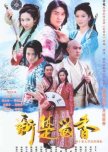
Lazy writing aside, there is Richie Ren’s interpretation of our bandit chief, Chor Lau Heung. He is… I don’t know what he is. Neither does Richie, it seems. I can say what he is not. He is not suave, charming, interesting, or even likeable. Half of the time, he is lovelorn. The other half, he seems to forget the girl exists. Sometimes he cares about his friends. Other times he acts like he doesn’t have any. This character is all over the place yet goes nowhere. It’s a shame, because Richie does have a solid supporting cast behind him.
Wayne Lai is his usual awesome self, even when he is stuck playing the archetypical best friend. Angie Cheung is mesmerizing as the femme fatale. Gigi Lai, Jess Zhang, Joey Meng, Ruby Lin and the rest are pretty in their own distinctive ways. You could watch this series for them, but why bother? They all have better works in their filmography. Same goes for Richie, bless his misguided effort.
Was this review helpful to you?
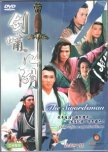
This series had more than its fair share of rape. I really don’t have the stomach for that, either.
Damian Lau was pushing 50 at the time, much too old for the lead role of Bak Wan. The bad wig and costume didn’t help his cause. The few characters worth watching were Eric Wan’s Chin Ming and Mak Ging Ting’s Hiu Yuet. Unlike Bak Wan, they at least showed some character growth.
The fight choreography was actually pretty good and creative for its time. But not good enough to save the story.
Was this review helpful to you?
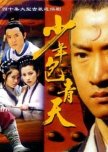
Don’t expect this show to be anything like Jin Chao Qun’s Judge Bao. This young version of Bao Zheng is not a judge, but more of a snoopy detective. Each case is like an Agatha Christie’s “whodunnit” with a lineup of suspects and twists designed to keep you guessing. I wish the writers are more creative in setting up the mysteries, though. After the second case, most people can spot the pattern and figure out who the murderers are.
Zhou Jie is an actor who puts 110% into understanding his character, even if he tends to overact at times. His Bao Zheng is goofy and even a little sly, but has enough conviction and gravitas to show how he would grow to become a Chinese symbol of justice. Like him or hate him, the series would not be the same without Zhou Jie’s talents.
The show has a great ensemble cast in Ren Quan, Li Bing Bing, Shi Xiao Long, and Liu Yi Jun. Their bantering and teasing of each other feel very warm and natural. You can’t help but smile. It’s like watching a bunch of sibling bicker, except for some flirting between the Zhou Jie-Li Bing Bing and Ren Quan-Liu Yi Jun coupledom.
Finally, a shout out to Chen Dao Ming as the 8th Prince. This man oozes shrewdness. He looks totally relaxed and bored, but you can tell that nothing escapes his notice. He steals every scene he's in. When it comes to acting, Chen Dao Ming is in a league of his own.
Was this review helpful to you?






